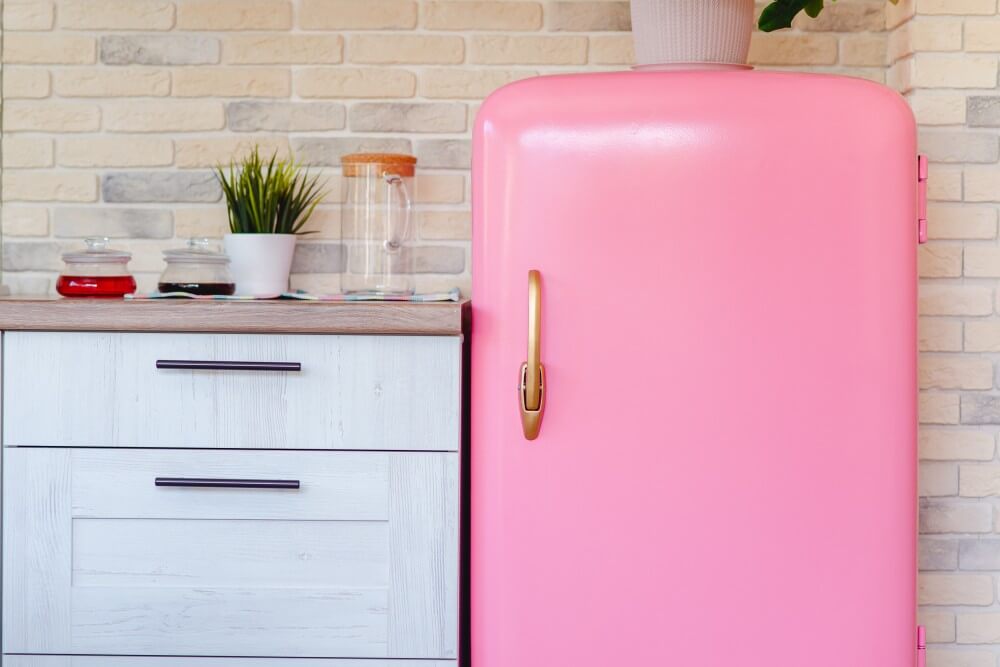Commercial vs. Residential Freezers — What are the Differences?
When it comes to freezers, there are two main types: commercial and residential. Both have their own advantages and disadvantages, so it’s important to choose the right one for your needs. The average household freezer is about 10 cubic feet, while a commercial-grade freezer can hold up to 800 pounds of food.
While many meat eaters and at-home chefs stock up on their favorite foods in their pantry or garage, not all freezers are made equal. These are often not the same as restaurant foodservice operations.
Read More: Top 10 Commercial Freezer Reviews with Buying Guide and FAQs
There are benefits and drawbacks to both types of freezers. If you’re trying to decide which one is right for you, here’s what you need to know about the difference between commercial and residential freezers.
About Residential Freezers
Home freezers are small and designed to be used in the home kitchen. They typically have one or two doors with shelves or drawers inside. These units are usually white or stainless steel on the outside, with a plastic interior.
1. Limited storage space
Designed for home use, residential freezers have limited storage space. Most models hold between 4 and 20 cubic feet of food, which is enough for a family of four but not enough for larger families or those who entertain often. Even the largest residential freezers can’t hold more than a few days’ worths of food.
2. Fragile exteriors
The exteriors of residential freezers are usually made of plastic or thin metal, which makes them more susceptible to damage. If you’re not careful, it’s easy to dent or scratch the surface.
3. Limited features
Residential freezers often have few features beyond the basics. You won’t find many bells and whistles, such as door alarms or automatic defrost cycles.

4. Uneven cooling
Residential freezers can have trouble maintaining a consistent temperature, leading to freezer burn. Food that’s not properly stored can also go bad more quickly.
5. Limited warranty
Most residential freezers come with a one-year warranty, though some models may offer a longer warranty of up to five years.
About Commercial Freezers
Commercial freezers are larger and designed for restaurants, grocery stores, and other foodservice businesses. They typically have multiple doors and shelves inside. These units usually have stainless steel outside with a plastic or metal interior.
1. More storage space
The biggest advantage of commercial freezers is that they offer more storage space. Most models hold between 20 and 800 cubic feet of food, enough to feed a large family or a small restaurant.
2. Durable exteriors
The exteriors of commercial freezers are usually made of stainless steel, which is more durable than plastic. This means they’re less likely to be damaged and easier to clean.
3. More features
Commercial freezers often have more features than residential models, such as door alarms, automatic defrost cycles, and temperature controls. This allows you to monitor the food better inside and keep it fresh for longer.
4. Better cooling
Commercial freezers typically have better cooling systems than residential models, so they can easily maintain a consistent temperature. This helps prevent freezer burn and keeps food fresher for longer.
5. Longer warranty
Most commercial freezers come with a two- or three-year warranty, making them a more reliable investment.
Commercial vs. Residential Freezers: Which One Is Right for You?
The type of freezer you need depends on your requirements and budget. A residential freezer should be sufficient if you have a small family and don’t entertain often. However, you’ll need a commercial freezer if you have a large family or run a food business.
When it comes to commercial vs. residential freezers, the decision ultimately comes down to your needs. A residential freezer should suffice if you have a small family and don’t entertain often. Consider the size, layout, features, and cost before deciding.
Size and Layout
The size and layout of the freezer are the most important factors to consider. You need to ensure the freezer is big enough to hold all your food but not so big that it takes up too much space. The layout is also important because you need to reach all of the food inside easily. If you need the freezer for commercial purposes, you would need a larger freezer.
Features
Commercial freezers typically have more features than residential models, such as door alarms and temperature controls. These features can help you track your food better and prevent spoilage.
Cost
Commercial freezers usually cost more than residential models, but they’re a better investment if you have a large family or run a food business. They’re built to last longer and can hold more food, so you’ll save money in the long run.

Energy Consumption
Commercial freezers use more energy than residential models, so you’ll need to factor that into your decision. A residential freezer may be better if you’re concerned about saving energy.
Maintenance
Commercial freezers require more maintenance than residential models because they have more features. You’ll need to clean them more often and perform regular maintenance to keep them running properly.
Warranty
Most commercial freezers come with a two- or three-year warranty, which is longer than the warranties for most residential models. This means you can feel confident in your purchase and know that the manufacturer backs it.
Cooling Ability
Commercial freezers have better cooling systems than residential models, so they can keep food fresher for longer periods of time. This is important to consider if you have a large family or need to store food for a long time.
Commercial vs. Residential Freezers: Final Words
If you know what to look for, then it is an easy decision. If you have a small family, you would not need a commercial freezer, but if you often entertain or have a large family, you may want to consider one. The main factors are size, layout, features, cost, and energy consumption. You must also factor in the maintenance and warranty when deciding. Choose the wrong one, and you may end up regretting it later. Get the right one, and you’ll be happy with your purchase for years to come.
We hope you found this article helpful. If you have any questions, please feel free to comment below.
Thanks for reading!




